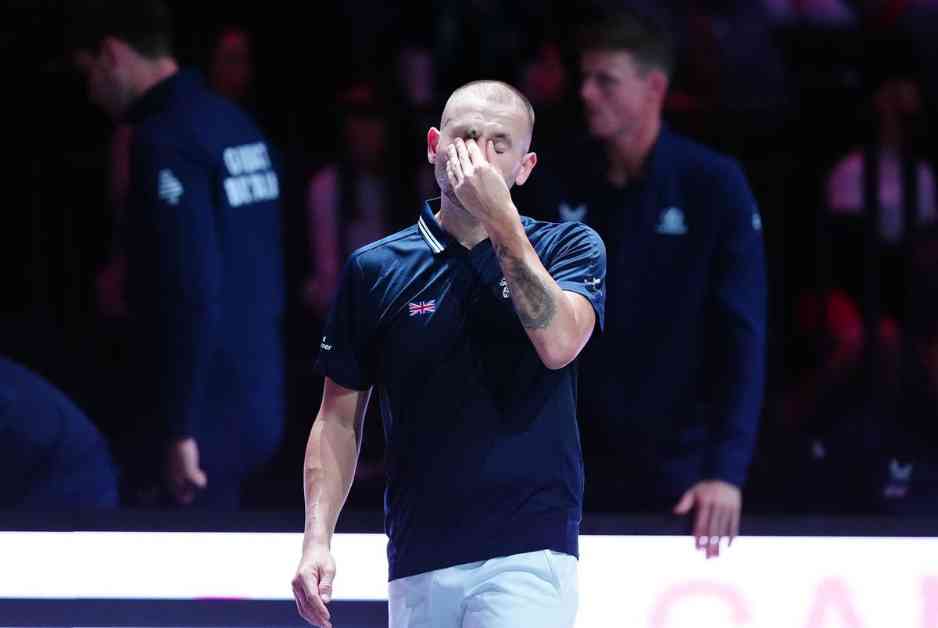Britain’s Davis Cup Defeat Deepens Concerns for Future Success
Britain’s hopes of advancing in the Davis Cup were dealt a severe blow on Friday as they suffered a disappointing loss to Argentina. The defeat, combined with other results in the group, meant that Leon Smith’s team needed a 3-0 victory in their final tie to progress. However, those hopes were quickly dashed as Dan Evans was outplayed by former top-10 star Denis Shapovalov, losing 6-0 7-5 in just over an hour.
The match, held at a sold-out AO Arena in Manchester, drew a record crowd of 15,700 – larger than Wimbledon’s Centre Court. Despite the overwhelming support from the fans, Evans could not find a way to turn the tide in his favor. The loss not only ended Britain’s Davis Cup campaign but also raised questions about the team’s future prospects.
Challenges Ahead for Team Great Britain
The Lawn Tennis Association has made significant investments in hosting team events in recent years, aiming to bolster the country’s presence in international competitions. However, this defeat marks the second time in three years that Britain has been eliminated in the group stage of the Davis Cup. With Andy Murray’s retirement leaving a void in the team, captain Leon Smith faces limited options for building a competitive lineup.
While promising young talents like Jack Draper show potential as future stars, the struggles of aging players like Dan Evans highlight the transitional phase that British tennis is currently experiencing. Evans, at 34 and slipping down the rankings, may be nearing the end of his peak performance years. Cameron Norrie’s injury troubles further compound the team’s challenges, leaving Smith with tough decisions to make regarding the lineup for future competitions.
Looking to the Future: Building a Stronger Team
In light of the disappointing result, Smith must now focus on developing a roster that can compete at the highest level. While Evans was a standout performer for Britain in the past, his recent struggles demonstrate the need for fresh talent to step up. Youngsters like Billy Harris, Jacob Fearnley, and Henry Searle offer glimpses of potential, but they will need time to mature and develop their skills on the international stage.
The loss to Argentina serves as a wake-up call for Team Great Britain, highlighting the gaps in their current lineup and the need for strategic planning to ensure future success. As other nations like Canada, who have successfully navigated the group stage, advance to the final eight event in Malaga, Britain must assess their strengths and weaknesses to build a competitive team for future competitions.
In conclusion, the defeat at the hands of Argentina in the Davis Cup underscores the challenges facing Team Great Britain as they strive to remain competitive on the international tennis stage. With a mix of experienced veterans and promising young talents, the team must regroup and refocus their efforts to build a stronger, more cohesive lineup for future competitions. Only time will tell if Britain can rise to the occasion and reclaim their status as a force to be reckoned with in the world of tennis.












